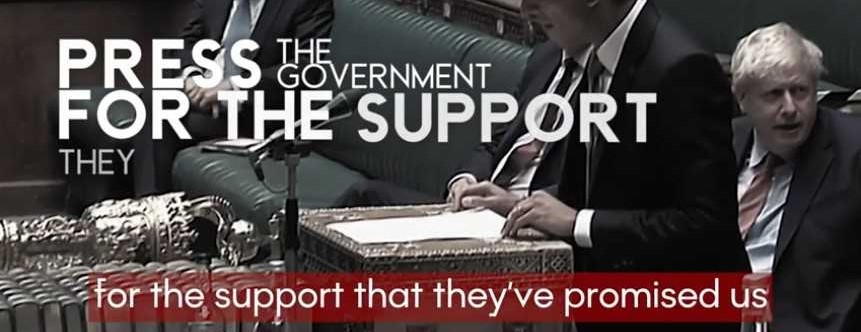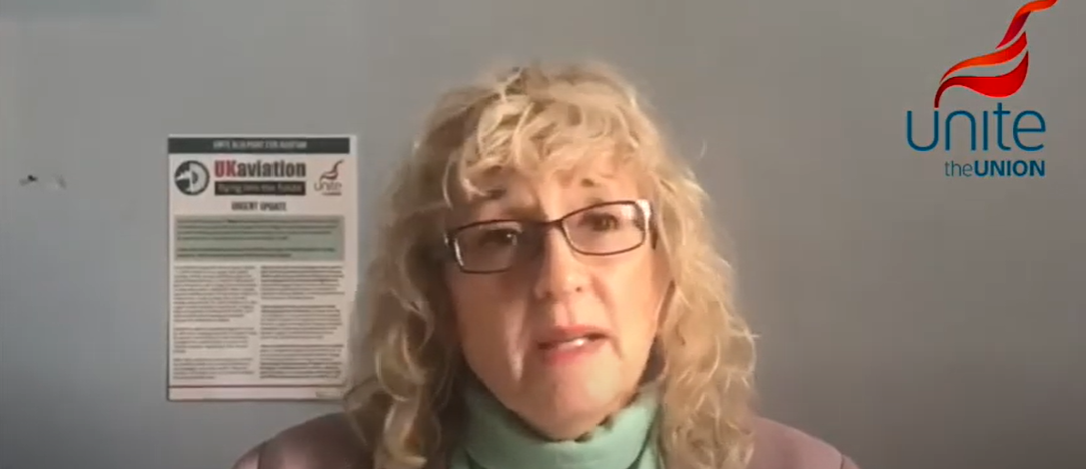Reform ‘long overdue’
Thousands of job losses could have been prevented if the government had taken action, MPs heard in the latest hearing of an inquiry investigating Thomas Cook’s collapse.
Trade union leaders including Unite assistant general secretary Diana Holland and TSSA general secretary Manuel Cortes gave evidence today (October 22) to the Business Enterprise and Industrial Strategy (BEIS) Select Committee outlining the steps the government could have taken — just as other European governments have done to save Thomas Cook subsidiaries which continue to operate.
“Condor in Germay is still flying – it’s a wholly owned subsidiary of Thomas Cook. Thomas Cook Balearics is still flying. Thomas Cook in Sweden is still flying,” Holland told MPs. “All of these businesses are able to be flying because of the arrangements in their countries which could have applied here.”
Cortes highlighted that the cost to provide emergency funding to Thomas Cook, which had asked for only £200m, pales in comparison to the latest estimate for allowing the travel firm to fail – a figure that’s now running upwards of £1bn.
“Our taxpayers will be footing a large amount of that,” he said.
Holland raised the case of Monarch Airlines, which like Thomas Cook’s UK airline, ceased operating as soon as it went into administration in 2017. And just like Thomas Cook, Monarch’s collapse required a mass repatriation that cost taxpayers dearly.
In response to Monarch’s collapse, a government review published earlier this year examined the lessons to be learned from Monarch and ways of preventing chaos in the wake of an airline going bust.
Holland highlighted that none of the recommendations in the report were followed once Thomas Cook ran into trouble.
“Why did we not learn the lessons from Monarch? – that is the big question,” she said.
She called for reform of insolvency laws so that when an airline enters administration, it is allowed to continue operating so that it can find a buyer or be given the chance to wind down in an orderly way. Holland also called for trade unions to be informed and consulted when a company is in financial trouble. In the case of Thomas Cook, Holland said Unite was kept very much in the dark, especially in the days before the firm’s collapse during emergency talks.
In fact, Cortes highlighted, many Thomas Cook retail shop workers were selling holidays as late as a day before the firm’s collapse – blithely unaware that the company was at the brink of going bust because they were repeatedly reassured that everything would be okay.
Auditors ‘complicit’ in collapse
Earlier in the hearing, MPs heard from auditors who had responsibility for Thomas Cook’s accounts in the months and years before the company folded.
BEIS committee chair Rachel Reeves savaged the auditors from Ernst & Young (EY) and PricewaterhouseCoopers, who were accused of being complicit in Thomas Cook’s failure.
MPs heard how both EY and PwC did other work for Thomas Cook, such as advising on executive pay, in addition to auditing services – work which presented a clear conflict of interest.
Between 2007 and 2016, PwC did more than ÂŁ21m in non-auditing work for the company, while EY was paid ÂŁ2.4m in non-auditing services since it took over from PwC in 2017.
It has also emerged that EY, which signed off Thomas Cook’s finances before the company collapsed, also wrote a report that was used to award the travel firm’s previous CEO Manny Fontenla-Novoa a £5m bonus.
EY is currently being investigated by the Financial Reporting Council (FRC), the UK accountancy watchdog.
Reeves argued in today’s hearing that the auditing industry will only change its dubious practices if forced to do so through legislation.
“I wonder how many more company failures, how many more egregious cases of accounting do we need?” Reeves asked. “We’ve had BHS, we’ve had Carillion, we’ve had Patisserie Valerie and now we have Thomas Cook. How many more do we need before your industry opens its ideas and recognises that you are complicit in all of this and that you need to reform?”
“We can’t rely on you to do the right thing and legislation is needed,” she added. “We need tougher regulation because your industry is not willing to make the changes needed. Reform is long overdue.”
Today’s hearing comes on the heels of the publication of an explosive new report this week from independent consulting service Syndex, which confirmed that the entire Thomas Cook group could have been saved from compulsory liquidation if the government had provided a financial guarantee of just £138 million.
 Like
Like Follow
Follow


